
"Public Perceptions of Corporate Position-Taking on Abortion and Transgender Rights" by Wayde Z. C. Marsh and Jordan Carr Peterson. www.journals.uchicago.edu/doi/10.1086/...
21.09.2025 18:37 — 👍 9 🔁 3 💬 1 📌 0@erickpadilla.bsky.social
PhDing at Universitat de Barcelona Political elites | Political Behavior | Technological change #Firstgen I also like football ⚽ and chess ♟️ epadillla.github.io

"Public Perceptions of Corporate Position-Taking on Abortion and Transgender Rights" by Wayde Z. C. Marsh and Jordan Carr Peterson. www.journals.uchicago.edu/doi/10.1086/...
21.09.2025 18:37 — 👍 9 🔁 3 💬 1 📌 0
We are hiring! We are looking for a prospective PhD student to work at the Department of Political Science of the University of Barcelona and the Institutions, Politics and Economics Research Center in connection to a research project on Backlash. More details here: sites.google.com/view/jordi-m...
19.09.2025 11:24 — 👍 5 🔁 9 💬 0 📌 0
1/ How does migration affect political attitudes? Using 380k obs from 104 sending & 28 receiving countries, @filipkostelka.bsky.social, Nicolas Sauger & I find some migrants’ attitudes align with locals, while others exceed origin-host context, reshaping ideological space.
👉 doi.org/10.1111/ajps...

Abstract of the research article "The sound of party competition: how applause reflects unity, disagreement, and the electoral cycle in parliaments" by Andreas Küpfer, Jochen Müller and Christian Stecker. Published online first in West European Politics.

Figure 1, displaying the occurences of different types of reactions in the German Bundestag between 1976 and 2020.

Figure 3, displaying the heatmap of predicted applause per 1000 words based on a Poission regression model.

Figure 5, displaying expected applause for interaction terms government and opposition.
💥Online first:
"The sound of party competition: how applause reflects unity, disagreement, and the electoral cycle in parliaments"
by @ankuepfer.bsky.social @jocmuel.bsky.social & @pluggedchris.bsky.social
doi.org/10.1080/0140...
🚨Very excited to see our new paper out in @jeppjournal.bsky.social!
We looked at how working with AI shapes people's risk perceptions and social policy preferences, with some surprising results ⬇️

Our article “Unsuccessful Candidates Are More Concerned About Electoral Fairness than Election Winners” is now online @thejop.bsky.social
Using RDD and elite survey data from Denmark, we show that losing candidates express greater concern about electoral fairness.
🔗 doi.org/10.1086/734240
Radical-right parties are often linked to the “left-behind”. But supporting them when stigma is strong is costly. So who is willing to pay that cost early on, before it’s normalized?
In my new WP, I argue that breaking political norms is socially stratified. 🧵👇
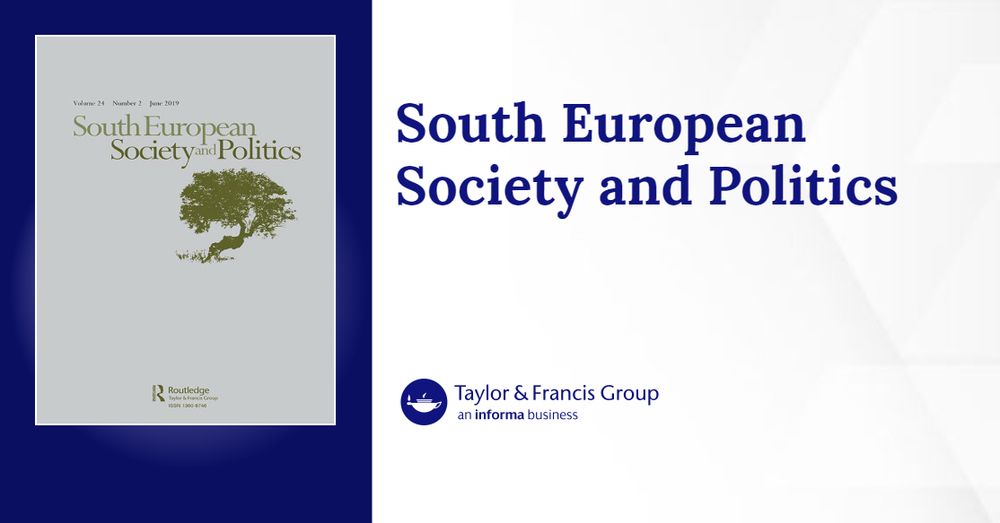
🚨My first published article together with @galais.bsky.social is out:
“Beyond fear and anger: the demobilizing role of sadness in far right voting in Spain”
In this article we address the emotional dynamics behind support for Vox in Spain.
🧵What do we find?
www.tandfonline.com/doi/full/10....
My paper on the electoral consequences of the coal phase-out in Germany is now out in print!
ejpr.onlinelibrary.wiley.com/doi/10.1111/...

✨Very happy to see my paper "Attitudinal ambivalence toward multiculturalism" out on @jeppjournal.bsky.social !
www.tandfonline.com/doi/full/10....
1/8 🧵
EPSA have announced that they will hold a conference in July 2026.
😵💫 We understand that there might be some confusion about EPSS and EPSA.
👉🏽 So we thought we would clarify some things.
A short 🧵
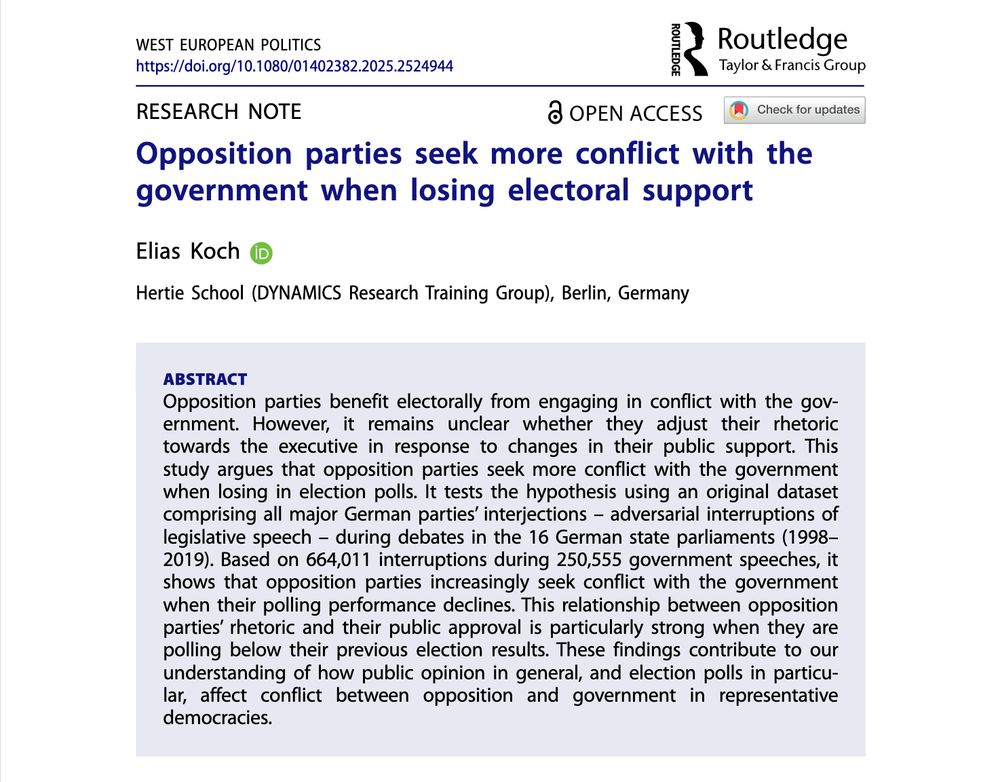
New paper out @wepsocial.bsky.social!
🥡 Key Take-Away: Opposition parties seek more conflict with the government when performing poorly in the polls – especially when falling below their previous election result.
Read full 🧵 below:
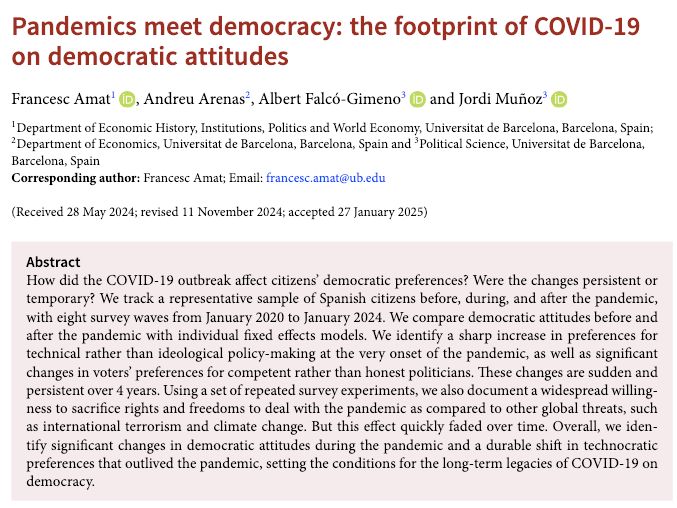
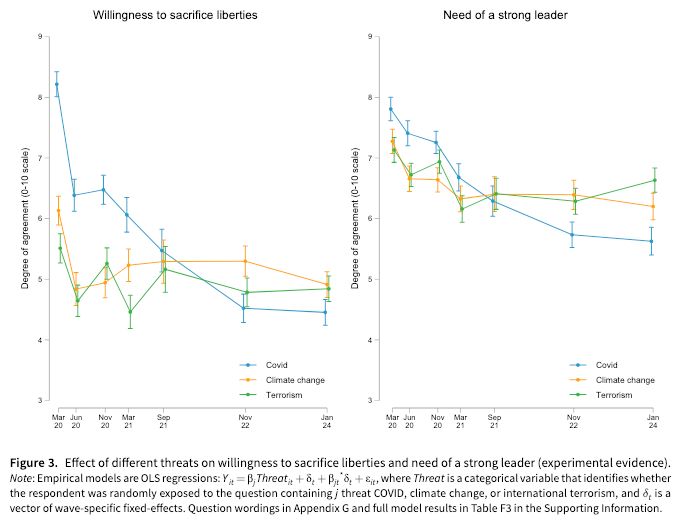
🧪How did COVID-19 affect citizens’ democratic preferences?
➡️ @cescamat.bsky.social A.Arenas A.Falcó & @jordimunoz.bsky.social find a lasting rise in technocratic preferences and a temporary bump in the willingness to sacrifice civil rights and freedoms www.cambridge.org/core/journal... #FirstView
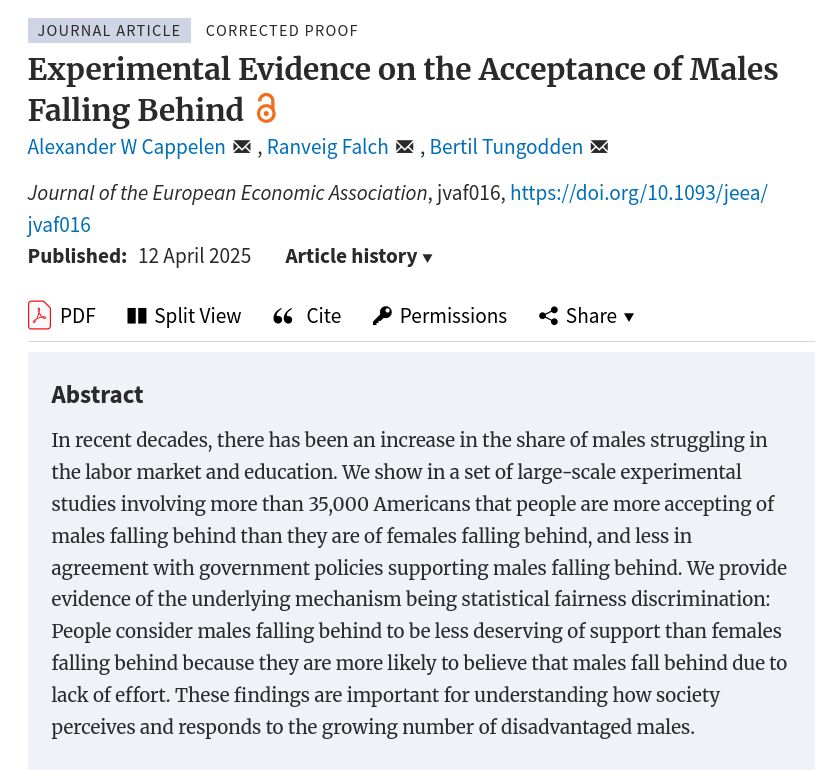
People are more likely to accept gender inequality if it is men who are worse off.
A new paper with experiments on 35k Americans shows that when men are worse off people are:
- more likely to attribute the inequality to a difference in effort
- less likely to support pro-equality policies.
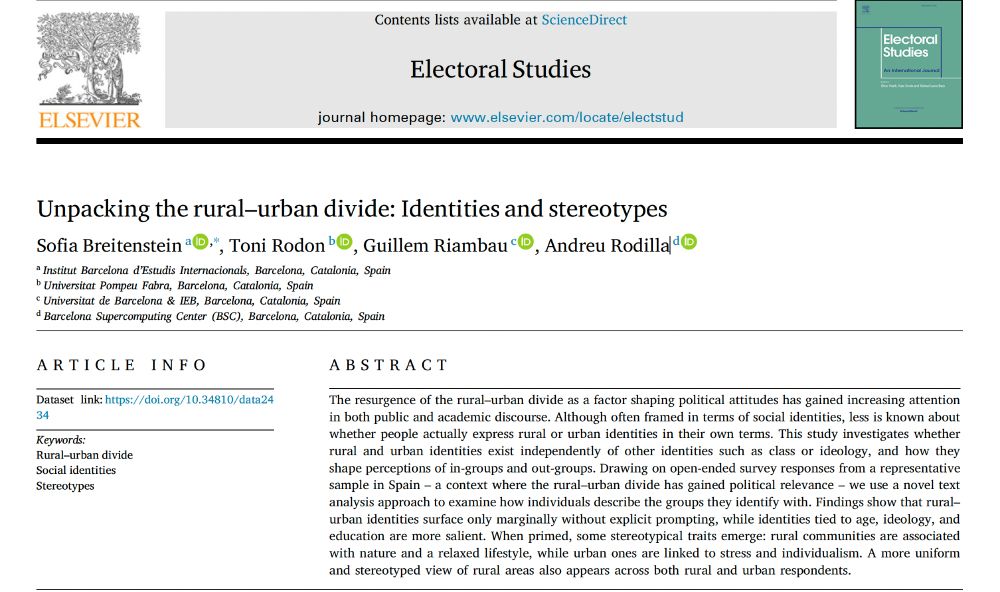
📢 Publication alert:
Our paper "Unpacking the rural–urban divide: Identities and stereotypes" - with @tonirodon.bsky.social, @griambau.bsky.social, and Andreu Rodilla - is now out in @electoralstudies.bsky.social.
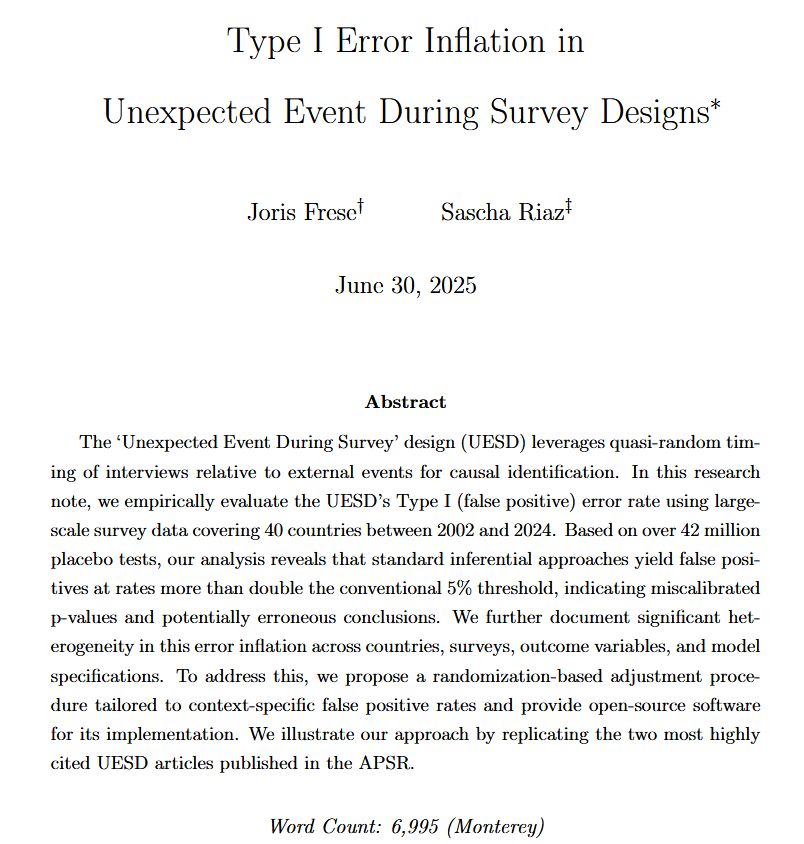
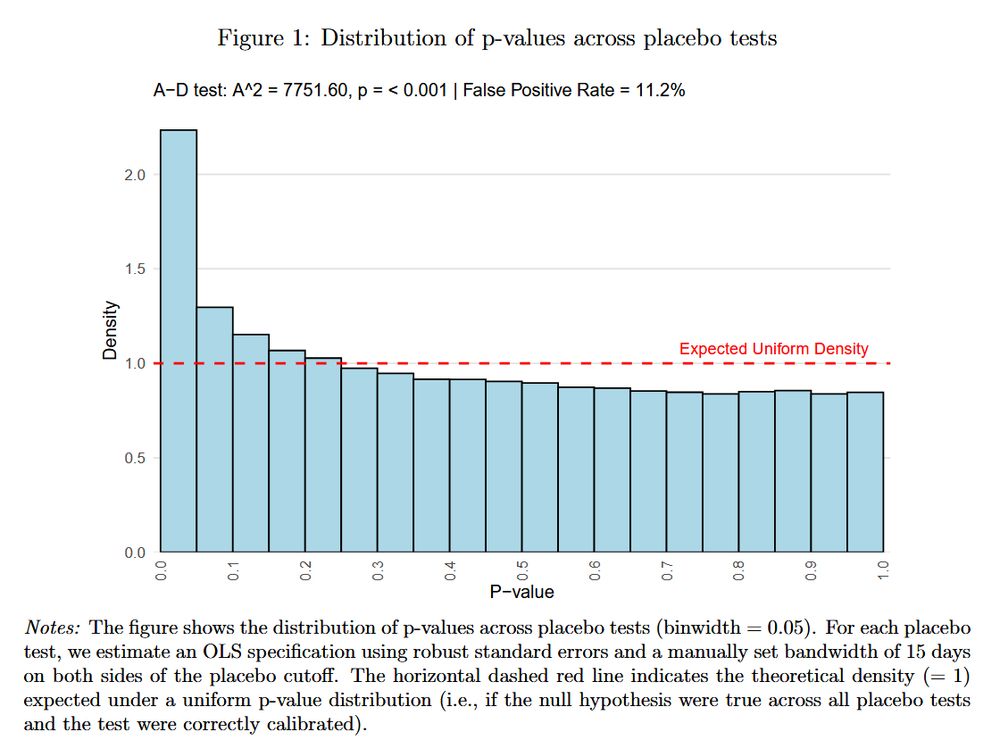
New WP w/ @riazsascha.bsky.social: via >42 million placebo tests, we show type I error inflation in Unexpected Event during Survey Designs (UESD), propose an adjustment, implement via new R package uesdRobust, and demonstrate utility by replicating two top UESD studies.
osf.io/preprints/os...
1/9
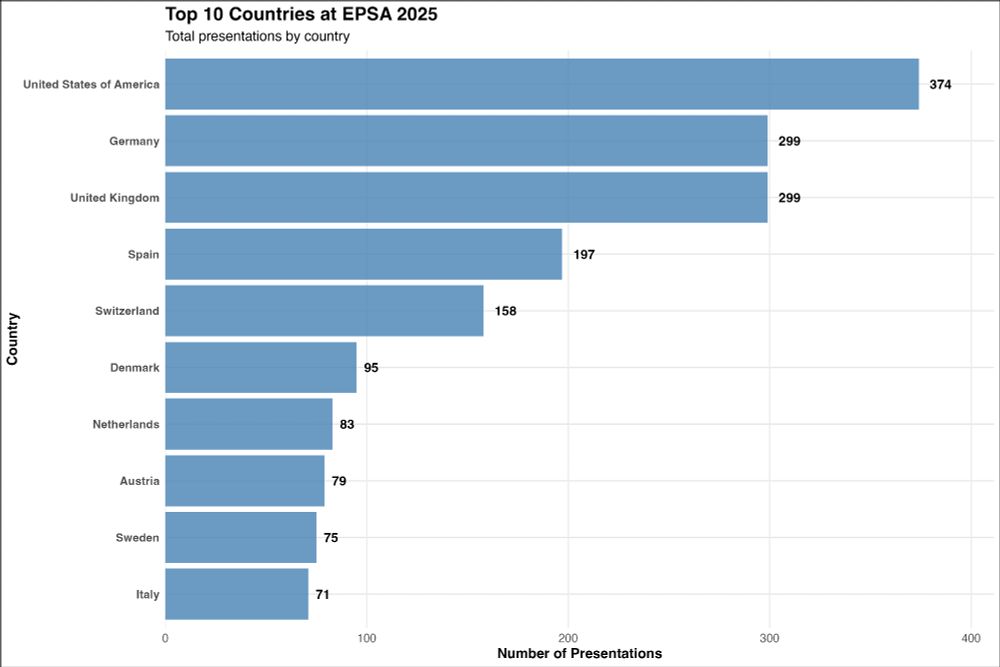
I took a closer look at the program #EPSA2024 and found some interesting trends – there seem to be more US based scholars than last year 🇺🇸
@epsanet.bsky.social
A thread on this year's authors and affiliations 🧵
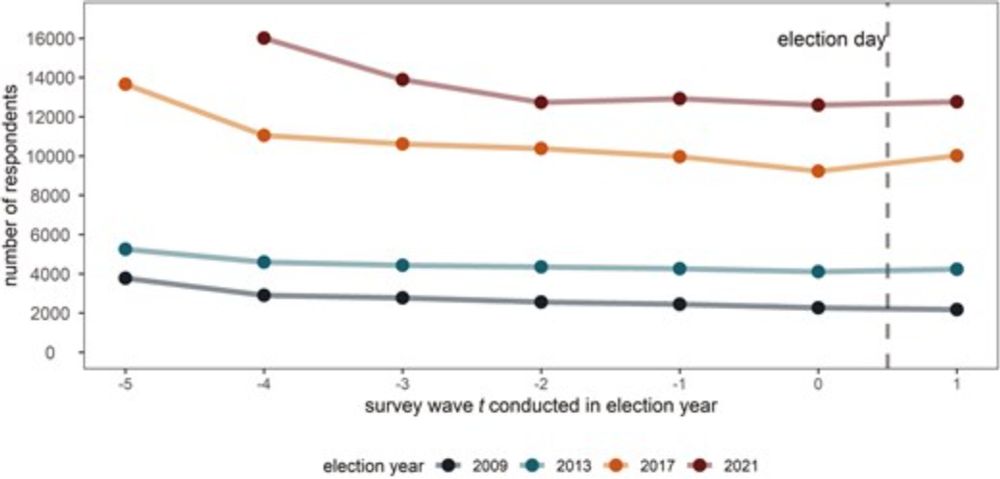
🚨 Excited to see my first solo-authored paper now published in IJPOR! 🚨
Do election outcomes affect participation in post-election surveys? And specifically, do election winners respond more than losers? The short answer: not really.
The slightly longer answer: 🧵👇
academic.oup.com/ijpor/articl...

🚨New article🔥
🏠UnfAirbnb! The Effect of Short-Term Letting on Electoral Behaviour, with JM Raya & C Llaneza at @polstudies.bsky.social
journals.sagepub.com/doi/10.1177/... What do we study? (1/n) @upf.edu @politiquesupf.bsky.social
Really interesting findings. I am curious why, in the Barcelona context, the effects are different from those in other contexts. For instance, in this case, in London, he found an increase in Brexit voting. etheses.lse.ac.uk/4279/1/Fonta...
16.06.2025 10:01 — 👍 0 🔁 0 💬 0 📌 0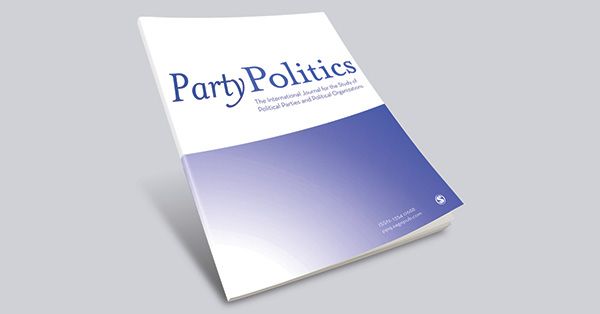
🚀 Just published! Our study in Party Politics investigates what drives political parties to digitalise internally (member engagement) & externally (campaigning)
✅ Bigger parties digitalise participation more
✅ Competition boosts digitalisation
👉 journals.sagepub.com/doi/10.1177/...
#DigitalPolitics
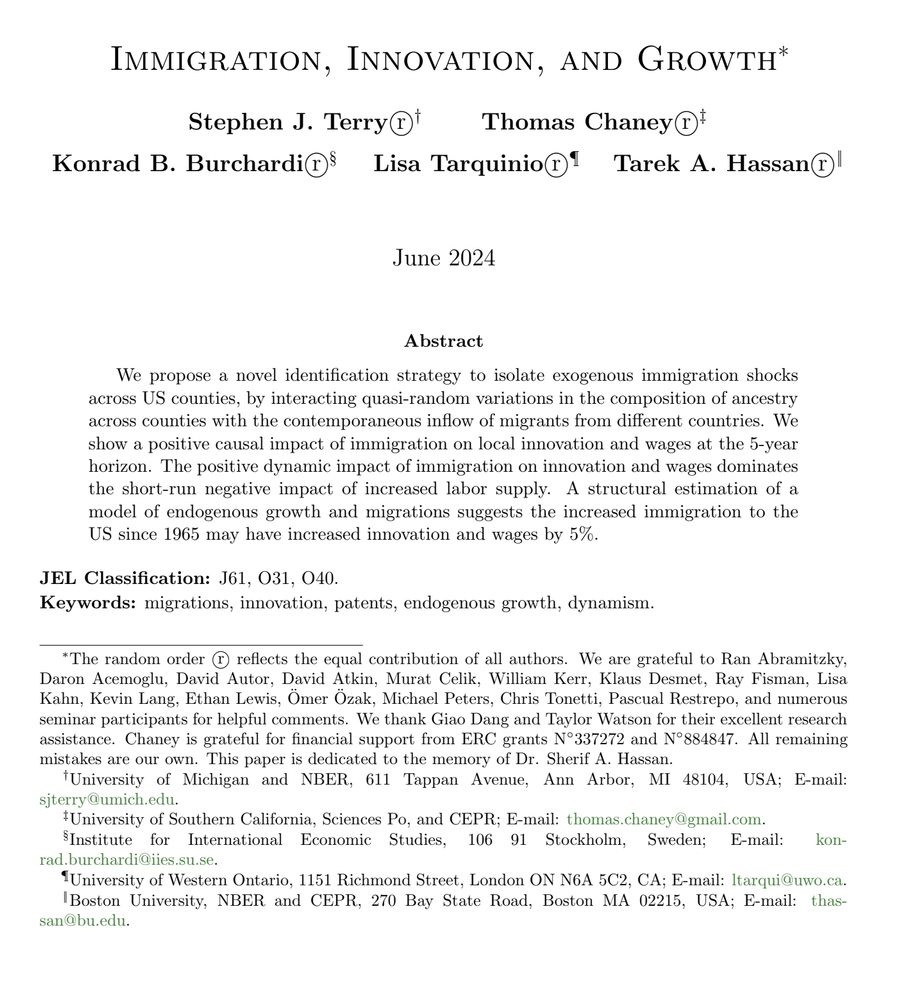
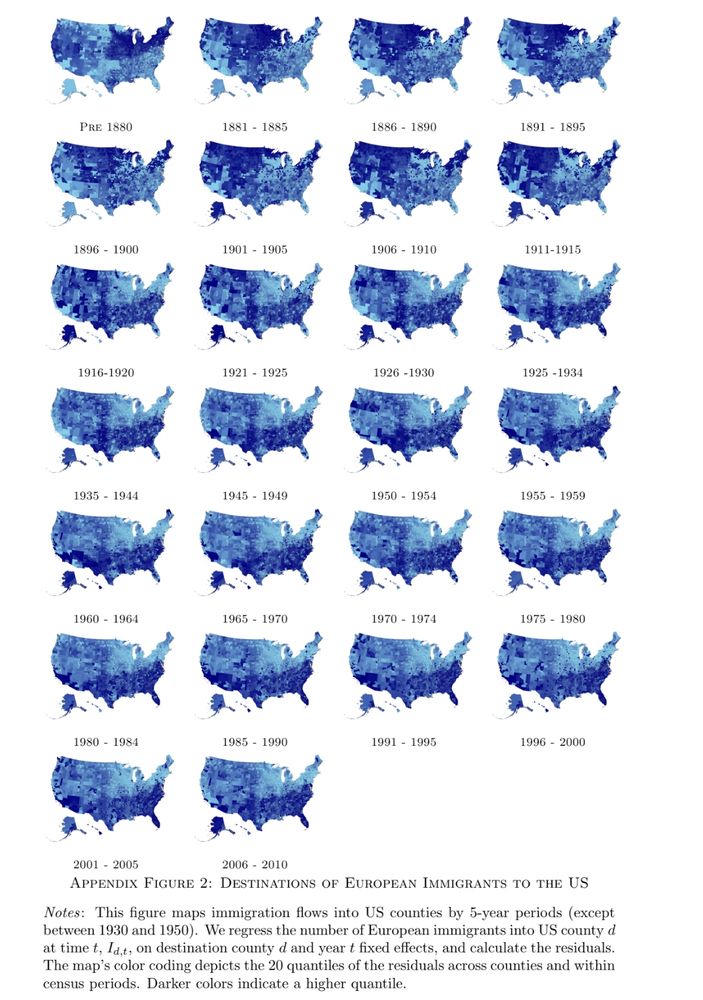
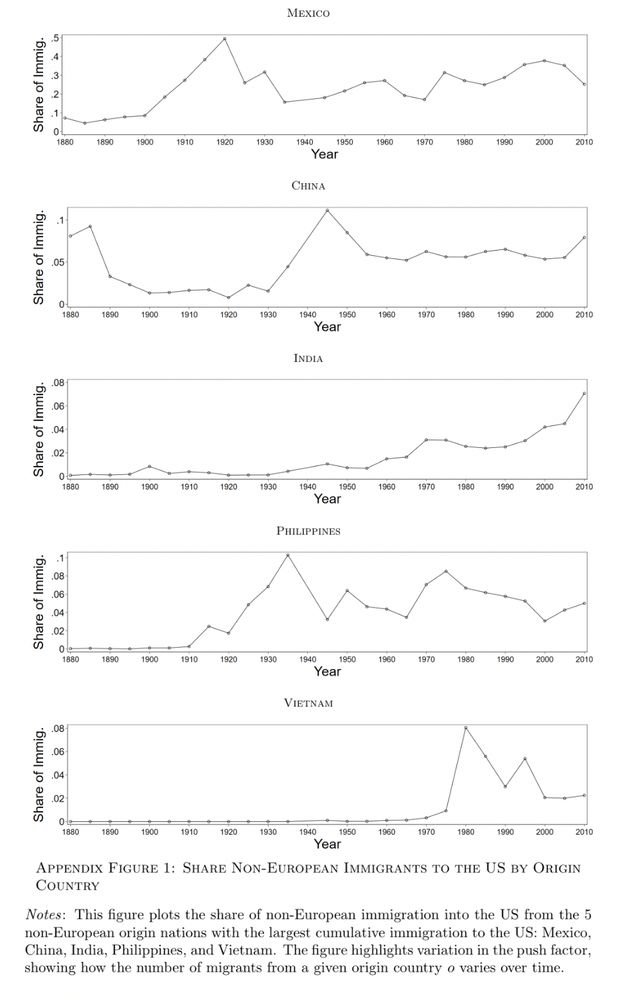
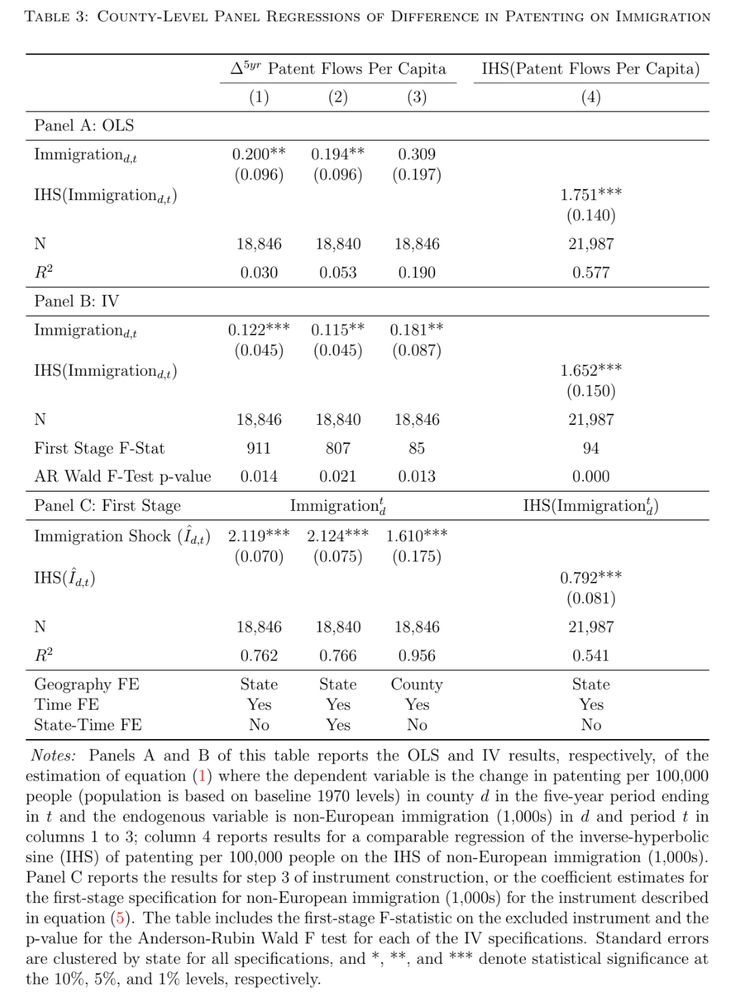
Immigrants increase innovation and economic growth [full stop]
29.05.2025 13:18 — 👍 233 🔁 79 💬 1 📌 7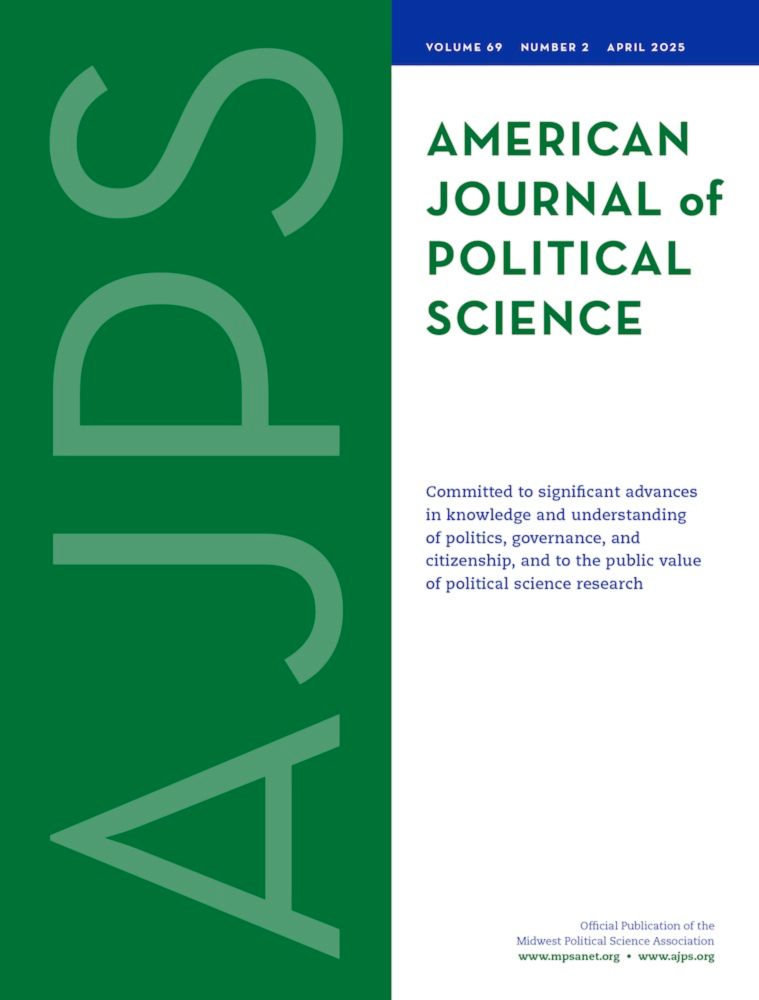
Absolutely delighted that my paper “The political consequences of Africa’s mobile revolution” is now Early View at @ajpseditor.bsky.social ! Quick thread (1/n) onlinelibrary.wiley.com/doi/10.1111/...
29.05.2025 10:35 — 👍 42 🔁 6 💬 4 📌 1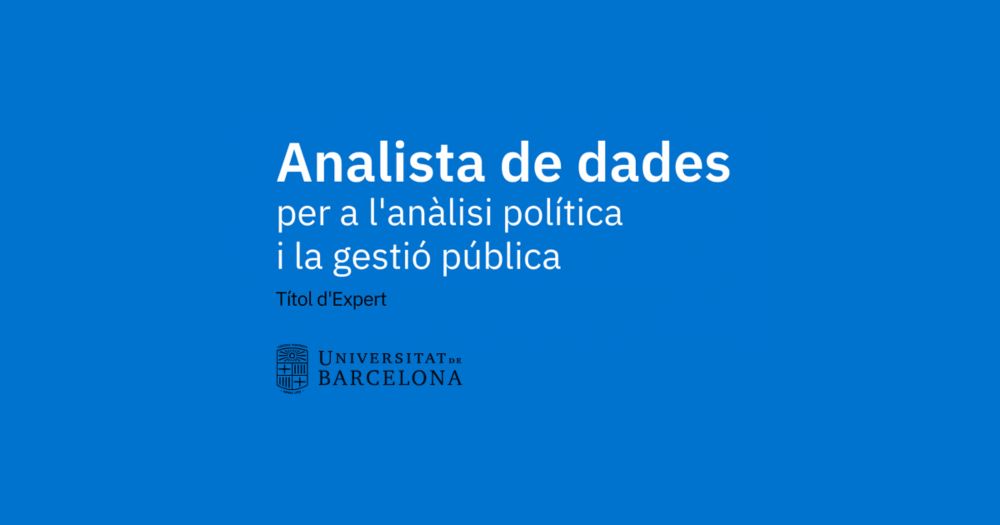
Avui, i fins al 15 de juny, hem obert les inscripcions per la novena edició del postgrau d'analista de dades per l'anàlisi política i la gestió pública que fem a @cpoliticaub.bsky.social @ub.edu www.ub.edu/analista-de-...
26.05.2025 16:13 — 👍 6 🔁 7 💬 1 📌 0New working paper with @erickpadilla.bsky.social
- We find that politicians' democratic attitudes and preferences are malleable to electoral losses!
- It resembles voters' BUT the interaction between candidate and party-level results (which we theorize) adds interesting nuances (we believe!)
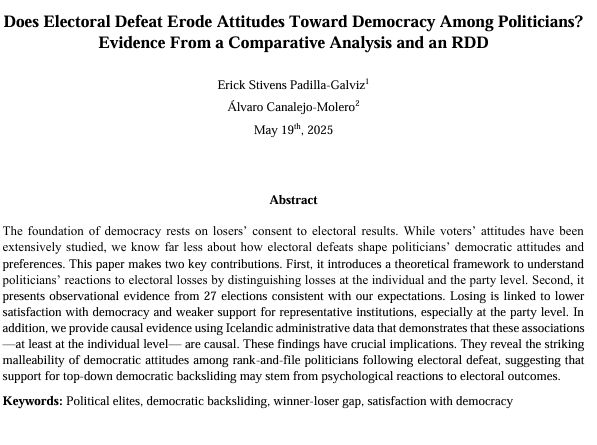
📢 New working paper!
Does losing an election make politicians less committed to democracy? 🗳️
With @canalejoalvaro.bsky.social we show that even mainstream politicians' democratic attitudes resent after defeat—especially when their party loses. ⚖️📉
Link: osf.io/preprints/os...
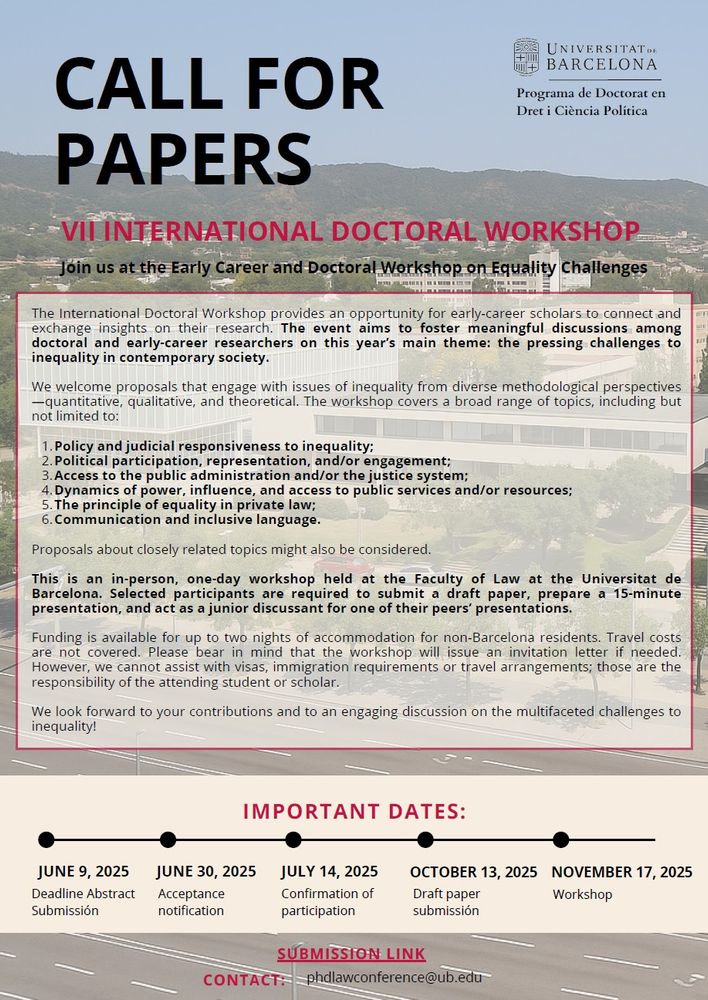
🧑🎓In November we will be hosting the VII International Doctoral Workshop on "The pressing challenges to inequality in contemporary society"
📅Apply by June 9
Find all relevant information on our website: sites.google.com/view/ublawco...
If you're interested, don't hesitate to submit your paper! It’s a great opportunity to share your work and receive academic feedback in an international environment.
Please share this call with colleagues and other young researchers. And feel free to DM me in case you have any questions!
📢 Publication alert:
Not just about the ruling: when does the opposition challenge a law in the Spanish Constitutional Court?
📄 [https://www.tandfonline.com/doi/full/10.1080/13608746.2025.2475019]
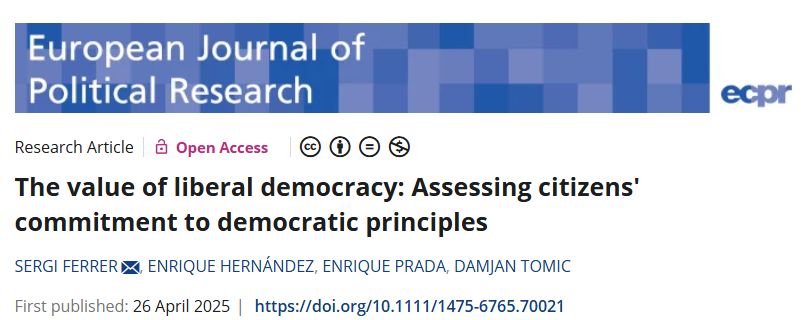
🎉🎉 Excited to share that our paper "The Value of Liberal Democracy: Assessing Citizens’ Commitment to Democratic Principles", co-authored with @ehernandez.bsky.social, Enrique Prada and Damjan Tomic, is now published in the European Journal of Political Research!🎉
28.04.2025 08:45 — 👍 46 🔁 15 💬 3 📌 2